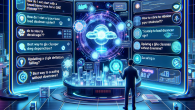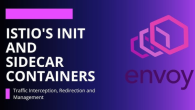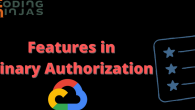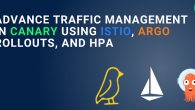
Software testing and quality assurance – The Role of AI in DevOps
Traditionally, software testing has taken more of a manual approach because most developers don’t want software testing as a full-time profession. Though automation testing has gained ground recently, the knowledge gap has hindered this process in most organizations. Therefore, AI would most impact the testing function as it bridges the human-machine gap.
AI-integrated testing techniques revolutionize every stage of the software testing life cycle (STLC); some of them are as follows:
- Test script generation: Traditionally, creating test scripts was time-consuming, involving deep system understanding. AI and machine learning (ML) now expedite this process by analyzing requirements, existing test cases, and application behavior to craft more optimized test scripts, offering ready-to-use templates with preconfigured code snippets and comprehensive comments, and translating plain language instructions into complete test scripts using natural language processing (NLP) techniques.
- Test data generation: AI-equipped testing tools provide detailed and ample test data for comprehensive coverage. They achieve this by generating synthetic data from existing sets for specific test objectives, transforming data to create diverse testing scenarios, refining existing data for higher precision and relevance, and scanning large code bases for context comprehension.
- Intelligent test execution: AI alleviates test execution challenges by automatically categorizing and organizing test cases, efficiently selecting tests for various devices, operating systems, and configurations, and smartly executing regression tests for critical functionalities.
- Intelligent test maintenance: AI/ML minimizes test maintenance challenges by implementing self-healing mechanisms to handle broken selectors and analyzing UI and code change relationships to identify affected areas.
- Root cause analysis: AI aids in understanding and rectifying issues by analyzing logs, performance metrics, and anomalies to pinpoint impact areas, tracing issues back to affected user stories and feature requirements, and utilizing knowledge repositories for comprehensive root cause analysis.
Multiple tools in the market help you achieve all of it; some of the most popular ones are the following:
- Katalon platform: A comprehensive quality management tool that simplifies test creation, execution, and maintenance across various applications and environments. It boasts AI features such as TrueTest, StudioAssist, self-healing, visual testing, and AI-powered test failure analysis.
- TestCraft: Built on Selenium, TestCraft offers both manual and automated testing capabilities with a user-friendly interface and AI-driven element identification, allowing tests to run across multiple browsers in parallel.
- Applitools: Known for its AI-based visual testing, Applitools efficiently identifies visual bugs, monitors app visual aspects, and provides accurate visual test analytics using AI and ML.
- Function: Utilizes AI/ML for functional, performance, and load testing with simplicity, allowing test creation through plain English input, self-healing, test analytics, and multi-browser support.
- Mabl: An AI-powered tool offering low-code testing, intuitive intelligence, data-driven capabilities, end-to-end testing, and valuable insights generation, promoting team collaboration.
- AccelQ: Automates test designs, plans, and execution across the UI, mobile, API, and PC software, featuring automated test generation, predictive analysis, and comprehensive test management.
- Testim: Uses ML to expedite test creation and maintenance, allowing for quick end-to-end test creation, smart locators for resilient tests, and a blend of recording functions and coding for robust test creation.
As we’ve already seen the benefits of AI in development and testing, let’s move on to software delivery.













Leave a Reply